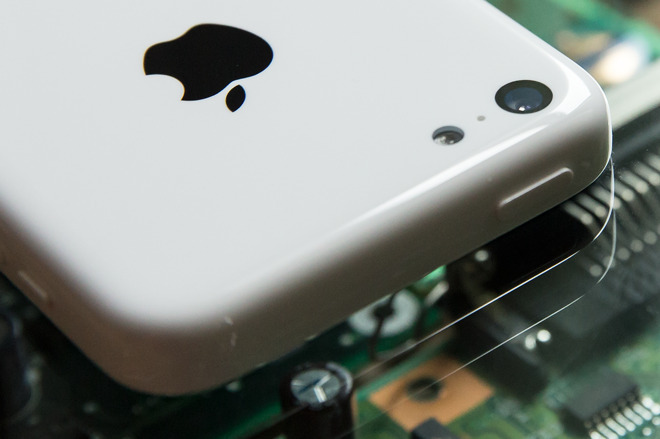Law enforcement sources on Tuesday said that while an iPhone linked to last year's San Bernardino shootings has yielded no actionable intel, the dearth of new information has actually helped the FBI investigation into the terror attack.
Citing unnamed law enforcement officials, CNN reports an iPhone 5c used by terror suspect Syed Rizwan Farook contains no evidence of contact with ISIS sympathizers or transfer of encrypted communications during a specific time window on the day of the attack.
The development has left investigators "more confident" that Farook and his wife Tashfeen Malik did not reach out to co-conspirators during an 18-minute gap in the FBI's model of events. Officials said the FBI could not put these theories to bed without access to Farook's iPhone, according to the report.
What the target iPhone 5c does not, and cannot, reveal is whether Farook and Malik used another mode of communication during the 18 minutes that have gone unaccounted for.
The innocuous iPhone, assigned to Farook by his former employer the San Bernardino County Health Department, was at the center of a divisive court battle involving Apple and the Justice Department. FBI officials requested Apple's help in extracting the passcode-locked phone's data, an action that would require the company to thwart its own security systems. Apple declined, setting up a court battle that in turn sparked debate over how best to weigh public rights to privacy with national security.
Federal prosecutors ultimately withdrew the case after an unnamed third party came forward with a working extraction method. With the passcode cracked, focus has turned to the phone's contents, a major bone of contention for both sides. The DOJ argued the need to exhaust every lead in its investigation, even if chances were slim that Farook's phone contained actionable intelligence.
Apple, which at that point had already handed over iCloud data from the account associated with the device, painted the government's pursuit as reckless. The company disagreed to creating a workaround that would potentially put hundreds of millions of iOS devices at risk of intrusion in return for a small amount of data stored on-device, if any existed.
According to today's report, investigators are satisfied that Farook's iPhone contains no data that was not already known. Quizzically, sources added that data gleaned from the device is still being analyzed, a situation seemingly unchanged from last week.
 Mikey Campbell
Mikey Campbell







-m.jpg)






 Charles Martin
Charles Martin
 Christine McKee
Christine McKee
 Wesley Hilliard
Wesley Hilliard
 Malcolm Owen
Malcolm Owen
 Andrew Orr
Andrew Orr
 William Gallagher
William Gallagher
 Sponsored Content
Sponsored Content








33 Comments
What good is it that the FBI keeps announcing and bragging about what is or isn't on the phone when they will never allow an outside party to verify its contents? They might as well come out and say that there is video proving Lee Harvey Oswald was the only shooter, but they can't release it for national security reasons. "Trust us, it's there," they'll exclaim.
Sounds like just another line of BS to try and make their case that the FBI should have access to everyone's phone and every detail of their life. Sorry, not buying it, FBI. Try again.
There is no information on the iPhone 5c. Lack of new information means FBI could focus on what they have instead of what they can have. I guess focus is a good thing.
So they found no information at all and try to spin it as a positive?
"Whew. That was a close one. Lucky for us there was no communication sent from the iPhone telling others to commit further terrorist acts. We're all saved. Good thing we were able to get into this iPhone to verify that it didn't actually contain anything."
We found nothing, which helped us...